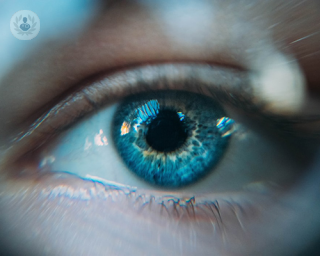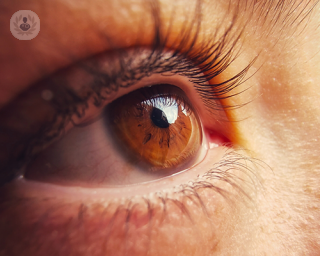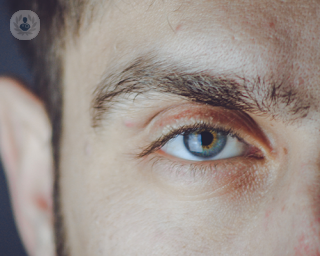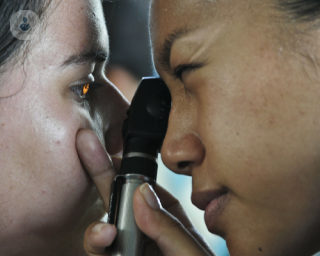Vitrectomy
Mr Craig Goldsmith - Ophthalmology
Created on: 12-23-2015
Updated on: 06-08-2023
Edited by: Jay Staniland
What is a vitrectomy?
A vitrectomy is a type of eye operation, in which the vitreous humour, a jelly-like fluid inside the eye is removed and replaced with a saline solution. The operation is usually performed under local anaesthetic.
The function of the vitreous humour is to protect the retina; the sensory membrane at the very back of the eye that receives light and sends images of what the eye sees to the brain. The vitreous humour occupies the space behind the lens and in front of the retina.
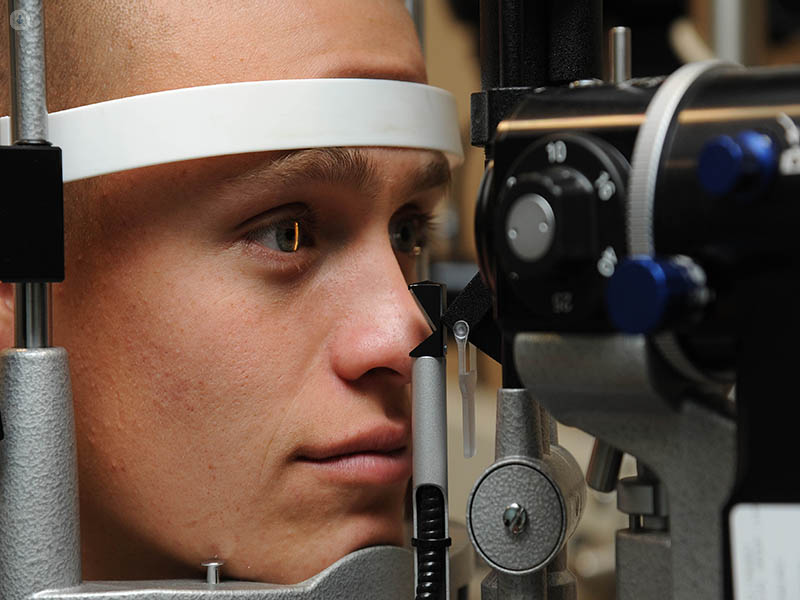
Why is a vitrectomy performed?
In order for the eye to process visual information, the vitreous humour must be clear enough for light to pass through to the retina. Sometimes, this gel-like substance becomes cloudy from various diseases or trauma, making it difficult to see. A vitrectomy is performed if vision has been diminished considerably and inhibits the patient from having a normal life.
A vitrectomy can be used to treat the following:
- Retinal detachment: sometimes the retina pulls away from the tissue around it and a vitrectomy makes it easier for the doctor to get to the retina to repair it.
- Diabetic retinopathy: a diabetes complication in which the retina becomes damaged due to uncontrolled blood sugars over a long period of time.
- Macular holes, diseases of the macula or macular degeneration: the macula is the central area of the retina, a hole in the macula can cause distortion of your central vision.
- Infections or inflammation of the eye, especially the middle eye or uvea (uveitis).
- Eye injuries or trauma.
- Cataract operations with complications (occasionally).
- Pathologies related to high myopia, in which light reaches a focus point before hitting the retina, causing blurry vision.
- Macular pucker - a wrinkly membrane that warps the macular causing blurry distorted vision.
What happens during a vitrectomy?
To begin with, small incisions are made into the sclera (white part of the eye) and the vitreous fluid is then removed with a needle. Instruments used in the procedure also include a fiber optic light and an irrigation cannula for suction. Once the vitreous fluid has been removed, the doctor will make any other necessary treatments that the eye needs and will then replace the vitreous fluid with saline or liquid silicone oil, depending on the pathology. The doctor may need to inject a tiny gas bubble into the eye to keep the retina in place.
The operation usually lasts from 20 to 90 minutes and, in some cases, further surgery may need to be performed, depending on the purpose of the operation.
Preparing for a vitrectomy
Before a vitrectomy, a detailed eye examination should be performed, usually accompanied by an ultrasound to provide the doctor with a detailed picture of the back of the eye. The doctor may need to insert drops into the eye to expand the size of the retina during the examination. Other tests that may be performed are the Retinal Optical Coherence Tomography (OCT) which uses light waves to take cross-section pictures of the retina, fluorescein angiography which examines the retina using a special camera and fluorescent dye or a full field electroretinography test.
Aftercare
Once the surgery has finished, the doctor will cover the eye with a patch, which can usually be removed after a few hours. The main side effect of the operation is eye pain, which can be treated with antibiotic drops or ointment and over the counter pain relievers.
It is recommended to have someone accompany you home after the operation as your vision will be blurry until your eye has fully healed and the gas bubble has been dissolved. There are rarely complications with a vitrectomy, but if you experience vision loss, see floaters or experience severe pain, contact your doctor right away.

